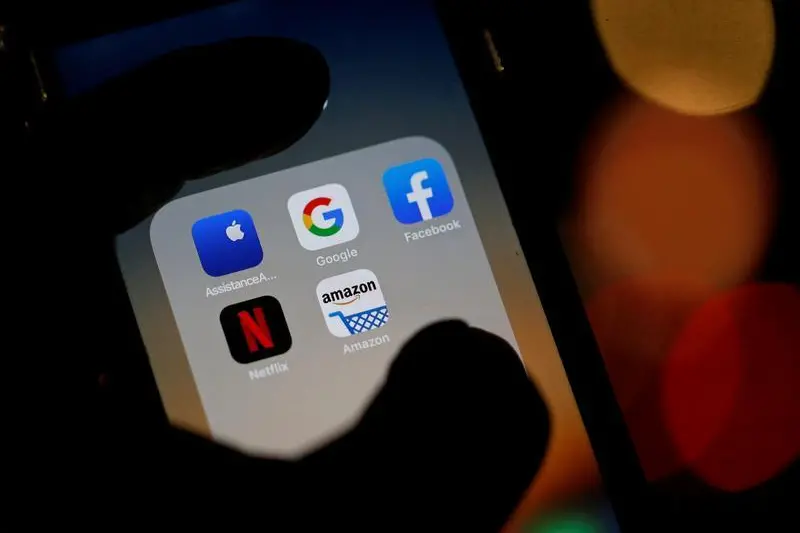PHOTO
(The author is a Reuters Breakingviews columnist. The opinions expressed are her own.)
MILAN - Back in the 1880s, horses plied the roads of London and most people lived a rural life. Jump to the 1920s and the combustion engine, electricity and the telephone had taken hold and re-shaped society. Today we are undergoing an even faster period of dramatic innovation. This has been a boon for big technology companies and their investors. For Azeem Azhar, it also represents a market failure that requires a new response.
In “Exponential: How Accelerating Technology Is Leaving Us Behind and What to Do About It” the tech writer takes readers on a details-rich journey from the discovery of the first transistor in 1947 to the arrival of TikTok. In the last decade, the pace of change has become exponentially and uncomfortably fast, lubricated by peak globalisation. “Technology, and particularly digital technology, diffuses at a faster rate than ever before. And this process is continually getting quicker.”
While the telephone took 50 years to reach three-quarters of American households, mobile phones reached the same goal in just over 20 years. Smartphones and social media did it in a decade. Facebook, launched from a university dorm in 2004, had 2.9 billion active monthly users at the end of June, more than one-third of the world’s population.
While the intense look at the history of technology may challenge even the most dedicated reader, Azhar grabs their attention when he points the finger at so-called Big Tech. Superstar companies like Google owner Alphabet and Amazon.com have replaced the big manufacturers of the past. Barring Saudi Aramco and Warren Buffett’s Berkshire Hathaway, eight of the world’s top companies by market capitalisation are tech-based.
They are also extremely dominant: Google commands an 80% market share for U.S. search queries while Uber Technologies accounted for 71% of American ride-hailing last year. About 10% of the world’s public companies create 80% of all profits, consultant McKinsey estimates. This suggests a winner-take-all situation where giant companies squash rivals or push them out of the market. While this may be beneficial for shareholders, it is by no means clear that it is good for economies or broader societies, Azhar argues. “How much economic reward should go to entrepreneurs, owners and workers And is it time for workers to be given a bigger share”
These are good questions, but Azhar is short on innovative solutions. He calls for tougher antitrust rules to close the gap between the leaders and the rest. He also argues for new forms of collective action to protect the informal workers who labour for companies like Uber. Yet, while he criticises policymakers and society at large for being slow to adapt, there are signs they are doing so.
This is particularly evident in the United States, where President Joe Biden has appointed vocal critics of technology giants to key positions in the Department of Justice and the Federal Trade Commission. Workers are also mobilising: Uber drivers and delivery riders have launched legal battles across the world to win fairer job contracts.
Azhar has one more original idea. To rein in superstar companies, he suggests nations should mandate that tech groups with a market share of at least 10%-15% should be forced to make their systems compatible, allowing users to carry data from one system to the other. “Interoperability redresses the power imbalances between large platform companies and individuals,” Azhar argues. “(It”) is the kryptonite to the winner-take-all power of network effects.”
In this world a user of, say, Microsoft-owned LinkedIn would be able to access and read their friends’ posts on Facebook-controlled Instagram or Twitter. Users would have more flexibility and control over their data. Companies would be forced to offer better services and products, and new startups could carve out fresh niches. Meanwhile, gig economy workers could bid for jobs from dozens of potential employers while carrying their track record with them. In short, power would slowly shift from all-powerful platforms and back to users and workers.
Forcing tech groups to share more information with users and rivals could be a good way to counter their monopolist tendencies, without choking off innovation. At the very least, it might help to slow down technology’s runaway train.
(The author is a Reuters Breakingviews columnist. The opinions expressed are her own.)
(Editing by Peter Thal Larsen and Karen Kwok) ((For previous columns by the author, Reuters customers can click on JUCCA/ SIGN UP FOR BREAKINGVIEWS EMAIL ALERTS http://bit.ly/BVsubscribe | lisa.jucca@thomsonreuters.com ; Reuters Messaging: lisa.jucca.thomsonreuters.com@reuters.net))





















